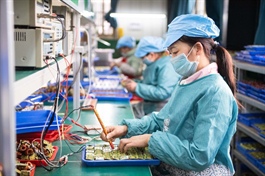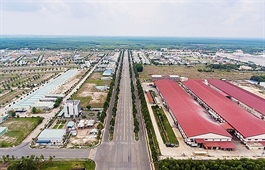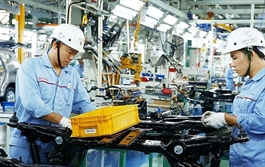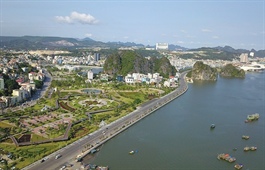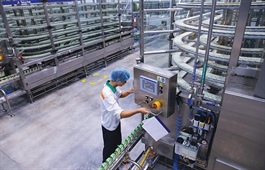Vietnam’s adept handling of Covid-19 outbreak helps calm consumers’ fears
Vietnam’s adept handling of Covid-19 outbreak helps calm consumers’ fears
Covid-19 derailed the fairly continuous advances of Vietnam’s consumer confidence, but that hit is likely to be temporary.
The Vietnamese government’s adept handling of the Covid-19 outbreak has helped calm consumers’ fears and buoyed investor confidence in the local stock market, according to VinaCapital, one of the largest asset management firms in the country.

Vietnam consumers are among the most optimistic in the world. Photo: vietcetera.com
|
The government’s Covid-19 response has earned it widespread praise in the international press. A survey by McKinsey in April showed that nearly half of the respondents expected Vietnam’s economy to fully rebound from Covid-19 within 2-3 months.
Meanwhile, Vietnamese citizens gave their government’s response to the Covid-19 the highest ranking in the world as per a survey by German research firm Dalia in March.
Vietnamese Prime Minister Nguyen Xuan Phuc has repeatedly emphasized that the government needed to address the public health emergency while simultaneously fostering economic growth, recognizing that a severe slowdown would cause undue misery for the country’s citizens.
Covid-19 derailed the fairly continuous advances of Vietnam’s consumer confidence. But that hit is likely to be temporary and is considerably less than the plunge in confidence experienced by most countries, VinaCapital’s Chief Economist Michael Kokalari commented.
Fortuitously, Vietnam’s relatively robust consumer confidence helped make the country one of the few in the world to report positive economic growth in the first half of the year, with GDP growing 1.8% year-on-year in the first half.
Consumption accounts for about two-thirds of Vietnam’s GDP, and high consumer confidence propelled a robust “V-Shaped” recovery in domestic demand following the end of the country’s brief, three-week “lockdown” in late April.
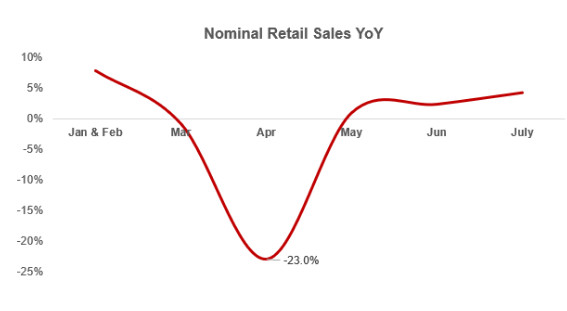
Source: VinaCapital
|
Vietnamese consumers are currently the second most optimistic in the world after India, according to market research firm Nielsen, which is reflected in Vietnam’s robust domestic economic activity, despite Covid-19. Vietnam’s position in the global consumer confidence rankings steadily increased and remained within the world’s top-five most confident countries nearly continuously over the last four years.
Vietnam’s economic growth is also being supported by strong demand for the “Stay at Home” goods that Vietnam manufactures and sells to developed countries. Surprisingly, domestic consumption actually makes a much larger contribution to the country’s economy than the export sector, despite the fact that Vietnam's exports-to-GDP ratio is over 100%.
Vietnam’s optimistic consumers are helping to support local stock prices because over one-third of Vietnam’s listed companies are “consumer facing” firms that benefit from consumer spending.
In addition, retail investors account for about 85% of stock market trading in Vietnam, and their high level of confidence prompted aggressive buying of Vietnamese stocks earlier this year –despite selling by foreign investors at that time.
“We fully expect that buoyancy to support Vietnamese stock prices going forward,” stated Kokalari.








